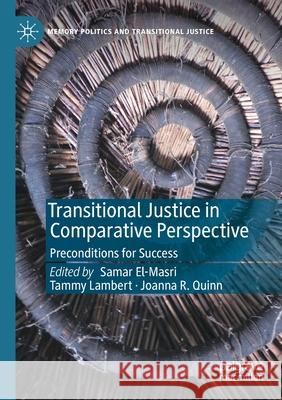Transitional Justice in Comparative Perspective: Preconditions for Success » książka
topmenu
Transitional Justice in Comparative Perspective: Preconditions for Success
ISBN-13: 9783030349196 / Angielski / Miękka / 2021 / 234 str.
Transitional Justice in Comparative Perspective: Preconditions for Success
ISBN-13: 9783030349196 / Angielski / Miękka / 2021 / 234 str.
cena 483,04
(netto: 460,04 VAT: 5%)
Najniższa cena z 30 dni: 424,07
(netto: 460,04 VAT: 5%)
Najniższa cena z 30 dni: 424,07
Termin realizacji zamówienia:
ok. 16-18 dni roboczych.
ok. 16-18 dni roboczych.
Darmowa dostawa!
Kategorie BISAC:
Wydawca:
Palgrave MacMillan
Seria wydawnicza:
Język:
Angielski
ISBN-13:
9783030349196
Rok wydania:
2021
Wydanie:
2020
Numer serii:
000461754
Ilość stron:
234
Waga:
0.31 kg
Wymiary:
21.01 x 14.81 x 1.37
Oprawa:
Miękka
Wolumenów:
01
Dodatkowe informacje:
Wydanie ilustrowane











